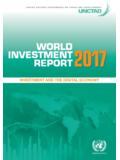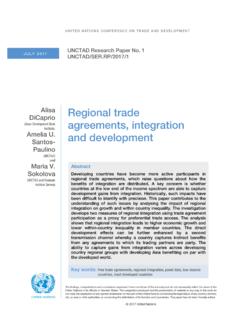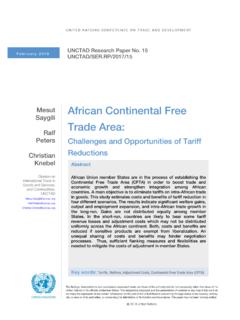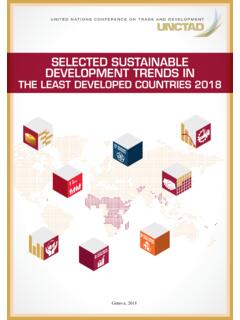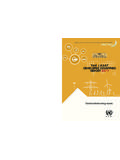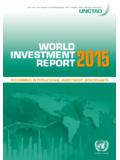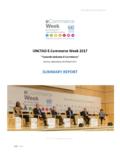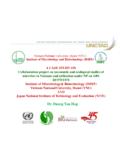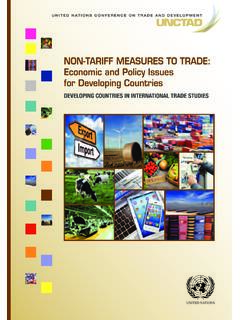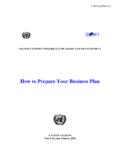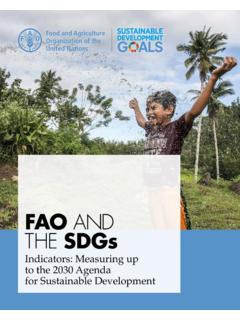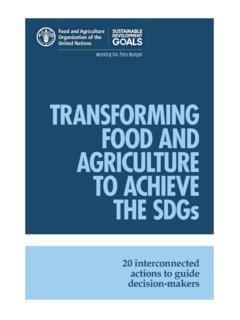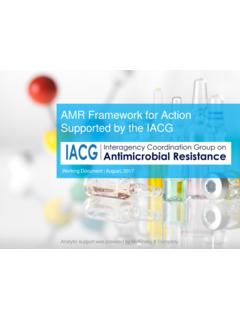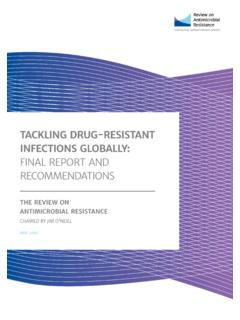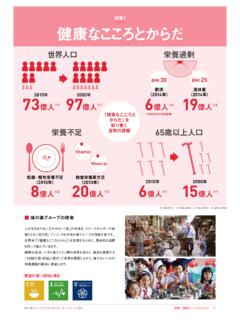Transcription of Sustainable Fisheries: International Trade, Trade …
1 U n i t e d n at i o n s C o n f e r e n C e o n t r a d e a n d d e v e l o p m e n t Sustainable fisheries : International Trade , Trade policy and Regulatory Issues Note The material contained in this publication may be freely quoted or reprinted but acknowledgement is requested, together with a reference to the document number. A copy of the publication containing the quotation or reprint should be sent to the UNCTAD Secretariat, at: Palais des Nations, 1211, Geneva 10, Switzerland. The designations employed and the presentation of the material do not imply the expression of any position whatsoever on the part of the United Nations Secretariat concerning the legal status of any country, territory, city area, or its authorities, or concerning the delimitations of its frontiers and boundaries, or regarding its economic system or degree of development.
2 This publication has been edited externally. Acknowledgements This note was jointly prepared by the United Nations Conference on Trade and Development (UNCTAD) and the Commonwealth Secretariat. In UNCTAD, the principal author was David Vivas Eugui, Legal Officer, with contributions from Bonapas Onguglo, Head , and Robert Hamwey, Economic Affairs Officer, Trade , Environment, Climate Change and Sustainable Development Branch, Division on International Trade in Goods and Services, and Commodities (DITC). The desktop formatting was done by Rafe Dent. In the Commonwealth Secretariat, the principal author was Stephen Fevrier, Former Trade Adviser (Economic Affairs Division). Contributions were provided by Jeff Ardron, Adviser (Ocean Governance); Mohammad Razzaque, Acting Director of Trade , Trade Division; Yagambaram Soobramanien, Economic Adviser ( International Trade policy ) Trade Division; and Jodie Keane, Economic Adviser ( Trade policy Analysis).
3 This document has also benefited from valuable comments provided by Mike Batty, Director of fisheries Development, Pacific Islands Forum fisheries Agency. Guillermo Valles Director Division on International Trade in Goods and Services, and Commodities Version 29 Apr 2016. UNCTAD/WEB/DITC/TED/2015/5. UNITED NATIONS PUBLICATION. Copyright United Nations, 2016. All rights reserved iii Contents Acronyms and v 1. 1. 2. FISH IMPORTANCE, DECLINE AND RECOVERY: SOME 2. The multifunctional role of fish in 2. The precarious situation of global fish stocks and emergence of 3. Sustainable 5. 3. THE 2030 Sustainable DEVELOPMENT AGENDA: FISH GOALS AND 7. 4. International Trade AND Trade 9. Fish 9. Fish tariffs (market access) and WTO non-agricultural market access (NAMA) negotiations.
4 11. Non-tariff measures (market entry).. 16. Certification .. 17. 19. 5. HARMFUL FISHING PRACTICES: THE CASE OF IUU 22. 6. SUSTAINING FISH STOCKS AND RESILIENCE: COMPLEMENTARY 25. National green and blue export performance and value addition .. 25. National and regional fish management systems .. 25. Marine-protected areas .. 27. Ecologically or biologically significant areas (EBSAS) .. 27. 7. FROM A TRAGEDY OF COMMONS TO A TRIUMPH OF COMMONS: A COMPREHEN sive Trade agenda for Sustainable 29. annex: CHAIRMAN'S CONLUSIONS: Ad Hoc Expert Group Meeting on Trade in Sustainable fisheries . UNCTAD and The Commonwealth Secretariat. Geneva, 29 September 1 October 34. iv Acronyms and abbreviations 2G Second-generation biofuels AHS effectively applied BND bound tariff rates CBD Convention on Biological Diversity EBSAs ecologically or biologically significant areas EEZs economic exclusive zones EPA economic partnership agreement EU European Union FMSs fisheries management systems GDP gross domestic product GVCs global value chains HACPP hazard analysis and critical control point HS Harmonized Commodity Description and Coding System IsPOA Istanbul Programme of Action for Least Developed Countries for the Decade 2011 2020.
5 IUU illegal, unreported and unregulated fishing IMO International Maritime Organization LDCs least developed countries MFN rates most favoured nation tariff rates MPAs marine protected areas MSC Marine Stewardship Council MSY maximum Sustainable yield NAMA non-agricultural market access (WTO). NGERs National Green Export Reviews (UNCTAD). NGESAP National Green Export Strategy and Action Plan NTMs non-tariff measures OHI Ocean Health Index PICs Pacific island countries RoO rules of origin RFMOs regional fisheries management organisations SDGs Sustainable Development Goals SIDS small island developing states SRFC West African Sub Regional fisheries Commission SPS WTO Agreement on Sanitary and Phytosanitary Measures SCM WTO Agreement on Subsidies and Countervailing Measures SVEs small.
6 Vulnerable economies TBT WTO Agreement on Technical Barriers to Trade UNCLOS United Nations Convention on the Law of the Seas UN FAO United Nations Food and Agriculture Organization UN GA United Nations General Assembly UNCTAD United Nations Conference on Trade and Development UVI unique vessels identifiers WTO World Trade Organization v Abstract This note proposes an agenda for Sustainable fisheries that promotes the conservation and Sustainable use of, and sustained Trade in, fish by all and ensures that development benefits accrue to fishing nations and their populations, in developing countries in particular. It provides a stock-taking of the present situation regarding fish, and a forward-looking view on future actions that need to be supported by renewed mandates for action by governments, the private sector and other fisheries stakeholders.
7 Our stocktaking finds that from humankind's earliest recorded history to today, fish (wild oceanic species). and other marine species have constituted an important natural resource. They are a source of food and nutrition, health, culture, income, employment and Trade , which can support livelihoods for coastal, as well as in-land, populations. Fish use and mangement is therefore intrinsically interwoven with humanity and nature. In the past, fish resources have been abundant and easily accessible. Unfortunately, this is no longer the case today. Fish stocks, especially of large predatory fish, have been severely affected and, in some cases, depleted. This tragedy is due to over- and harmful fishing, often aided by advanced fishing technology, to meet high-food demand from growing populations.
8 Such practices have also been to the detriment of natural fish habitats, namely oceans, regional seas, lakes, rivers and adjacent coastal ecosystems. A multitude of national, regional and multilateral/ International initiatives, frameworks, regulatory and voluntary codes of conduct, standards and institutions have been developed over the past two decades to rebuild fish stocks, conserve marine species, halt destructive fishing practices, and preserve related ecosystems and oceans. Fishing agreements have also been concluded to facilitate Sustainable harvest and Trade in fish. The awareness of consumers has also been raised to encourage the purchase and consumption of sustainably caught fish which, in turn, is bringing about changes in supermarket chains and restaurants in terms of their buying, selling and producing fish products and meals made from sustainably harvested fish.
9 These positive efforts have resulted in some progress; however, overall they have been unable to stop and reverse the deterioration of global fish populations and marine ecosystems. The expiry of the United Nations Millennium Development Goals (MDGs) in 2015 and recent launch of the UN 2030 Agenda for Sustainable Development includes a specific goal (Goal 14) on conserving and sustainably using oceans, seas and marine resources. The Sustainable Development Goals (SDGs) are accompanied by several management-related targets on fish. They denote the strong aspirations of the global community at the highest political level to prioritise and focus attention on restoring the health and resilience of our oceans and resources, including fish, over the next 15 years.
10 This accord presents a new opportunity, but also some challenges for the International community to mobilise actions. These actions must be considered within the myriad of fishing-related instruments, including fisheries partnership agreements and Trade agreements, so as to concretely and significantly arrest the tragedy of commons'. in fish today and instead transform the situation into a triumph of commons' for fish in the future. International Trade , Trade policy and Regulatory Issues 1. 1. INTRODUCTION. Fish1 is important to humanity and the environment in equally notable that all these commitments endeavour many respects. It is a particularly valuable resource to seek a balance in addressing, positively, inherent for fishing nations and communities, especially in conflicts between the conservation, rebuilding and developing countries and least developed countries restoration of fish stocks and ecosystems services on (LDCs) with sea zones, and in small island developing the one hand, and the Sustainable use (harvest, trading states (SIDS).)
